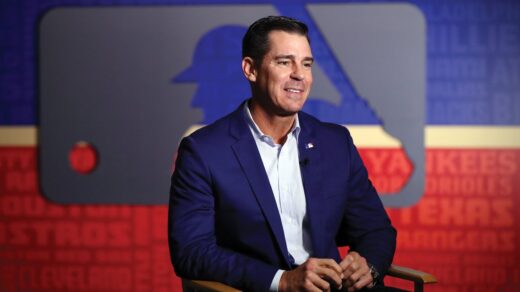From PEPFAR to peril, what happens when lifelines are cut?
Author: Maria Sjödin
The Trump administration wasted no time in rolling out policies that restrict LGBTQ+ rights, both in the United States and globally. So far, one of the most devastating decisions has been the suspension of nearly all international aid for 90 days—throwing critical humanitarian programs into limbo and creating massive uncertainty about whether they will ever be reinstated.
This decision isn’t just an accounting shift; it’s a life-or-death situation for countless LGBTQ+ people worldwide.
The new administration has aggressively restricted transgender rights under the guise of protecting women. A presidential order now defines gender as determined at conception, disregarding biological and medical science and threatening the rights of anyone who has or needs to change their gender legally. From the ability to have the correct gender marker on passports to accessing gender-affirming healthcare for young people, trans and intersex individuals are being systematically erased from public life. The State Department has even downgraded its LGBTQ+ travel advisories, replacing them with “LGB Travel Information,” which fails to acknowledge the heightened risks trans people face abroad.
However, no Presidential executive order can erase transgender, nonbinary, and intersex people. They have existed in cultures worldwide since the beginning of humanity, including among many Indigenous peoples in America. Recognizing diverse gender identities and expressions is not a new phenomenon—it is a fundamental part of human history. Intersex people, in particular, are born with sex characteristics (such as sexual anatomy, reproductive organs, hormonal patterns, and/or chromosomal patterns) that do not fit typical binary notions of male or female bodies. Experts estimate that up to 1.7 percent of the population is born with intersex traits. These identities and experiences cannot be legislated out of existence, no matter how hard oppressive policies may try.
This regressive vision of gender and human rights is now being exported through U.S. foreign policy. Funding for LGBTQ+ organizations around the world is at risk of disappearing entirely. According to the Global Resources Report from the Global Philanthropy Project, the U.S. has been one of the largest governmental donors to LGBTQ+ organizations worldwide over the last decade. But that support is crumbling, leaving activists and civil society groups scrambling to survive.
For many within the global LGBTQ+ community, aid-funded programs are the difference between safety and life-threatening danger. Organizations providing shelter, legal assistance, and advocacy for policy reforms are now facing financial disaster. In countries where homophobia and transphobia are deeply embedded in law and society, these initiatives are often the only lifeline for people facing violence, persecution, or even death.
One of the most devastating consequences is on global health. The defunding of USAID programs is slashing support for critical HIV prevention and treatment initiatives, disproportionately harming LGBTQ+ communities. This is not just a setback—it’s an unraveling of years of progress. The U.S. President’s Emergency Plan for AIDS Relief (PEPFAR), a landmark initiative launched under George W. Bush, has been one of the most essential programs in combating the global HIV/AIDS epidemic. PEPFAR has saved millions of lives by funding antiretroviral therapy, education, and prevention programs, particularly in sub-Saharan Africa.
However, with U.S. support now in question, these life-saving services are at risk of collapse. Without sustained funding, we could see a resurgence of the HIV epidemic, undoing decades of hard-won progress.
Beyond the immediate health crisis, the aid freeze erodes global civil society. Many LGBTQ+ organizations rely on U.S. funding to sustain their work. With that support gone, organizations are shutting down, leaving LGBTQ+ people even more vulnerable. Outright International has already had to inform over 130 partner organizations in almost 50 countries that all ongoing and planned activities are suspended under the stop work order from the U.S. Administration, with no clarity on whether funding will resume. While it takes years to build support systems, they can be dismantled instantly.
These funding cuts come at a time when LGBTQ+ people worldwide are facing an alarming rise in violence and repression. In over 60 countries, same-sex relationships remain criminalized. In several, persecution of those who defy norms around sexuality and gender is worsening. Many of these laws are remnants of colonial rule, and nearly 30 countries have repealed them since 2000. But the global backlash is real. In Russia, authorities have designated the LGBTQ+ movement an extremist organization, effectively criminalizing all activism. Uganda has enacted a law imposing the death penalty for “aggravated homosexuality,” further endangering LGBTQ+ people. Mali has recently criminalized same-sex relations. Meanwhile, Turkey’s government is pushing for a constitutional definition of family and gender that would erase LGBTQ+ people from legal recognition and protection.
These crackdowns make international funding more essential than ever. The fight for LGBTQ+ rights is not just about responding to crises—it’s about building long-term movements that can challenge discriminatory laws, advocate for legal reforms, and create safe spaces for LGBTQ+ people. Cutting aid isn’t just a financial decision with devastating consequences for the most vulnerable—it’s also a catastrophic setback for global human rights.
It risks reversing decades of progress in securing fundamental protections for LGBTQ+ people worldwide.
While some forms of U.S. aid will likely resume—presumably primarily through faith-based and conservative aid organizations—the outlook for human rights groups, especially those defending LGBTQ+ rights, remains bleak. These organizations aren’t just being neglected; they are actively targeted. The administration’s hostility to LGBTQ+ issues is apparent, both in domestic policies and in foreign aid priorities. And with the rise of anti-LGBTQ+ rhetoric among right-wing leaders worldwide, the U.S. withdrawal from supporting LGBTQ+ rights sends a dangerous signal that oppression can continue unchecked.
The loss of U.S. support leaves a gaping hole but presents an urgent call to action. Philanthropic donors, progressive governments, and civil society organizations must step up. We cannot allow decades of work to be undone. We cannot allow the HIV crisis to escalate once again due to political indifference. And we certainly cannot allow LGBTQ+ people around the world to be abandoned when they need solidarity the most.
We are not just witnessing an attack on LGBTQ+ rights—we are seeing an attack on the very foundation of human rights and international solidarity. The response from the LGBTQ+ community, allies, and human rights defenders must be clear: We will not stand by while lives are put at risk. We must mobilize resources, amplify voices, and push for accountability. The future of the global LGBTQ+ movement depends on it.
Maria Sjödin is the Executive Director of Outright International, a global champion in strengthening the capacity of the LGBTQ+ movement, documenting and amplifying human rights violations, and advocating for inclusion and equality for all. Learn more about Outright International on its website at outrightinternational.org.
Voices is dedicated to featuring a wide range of inspiring personal stories and impactful opinions from the LGBTQ+ and Allied community. Visit Advocate.com/submit to learn more about submission guidelines. We welcome your thoughts and feedback on any of our stories. Email us at voices@equalpride.com. Views expressed in Voices stories are those of the guest writers, columnists and editors, and do not directly represent the views of The Advocate or our parent company, equalpride.
Original Article on The Advocate
Author: Maria Sjödin





